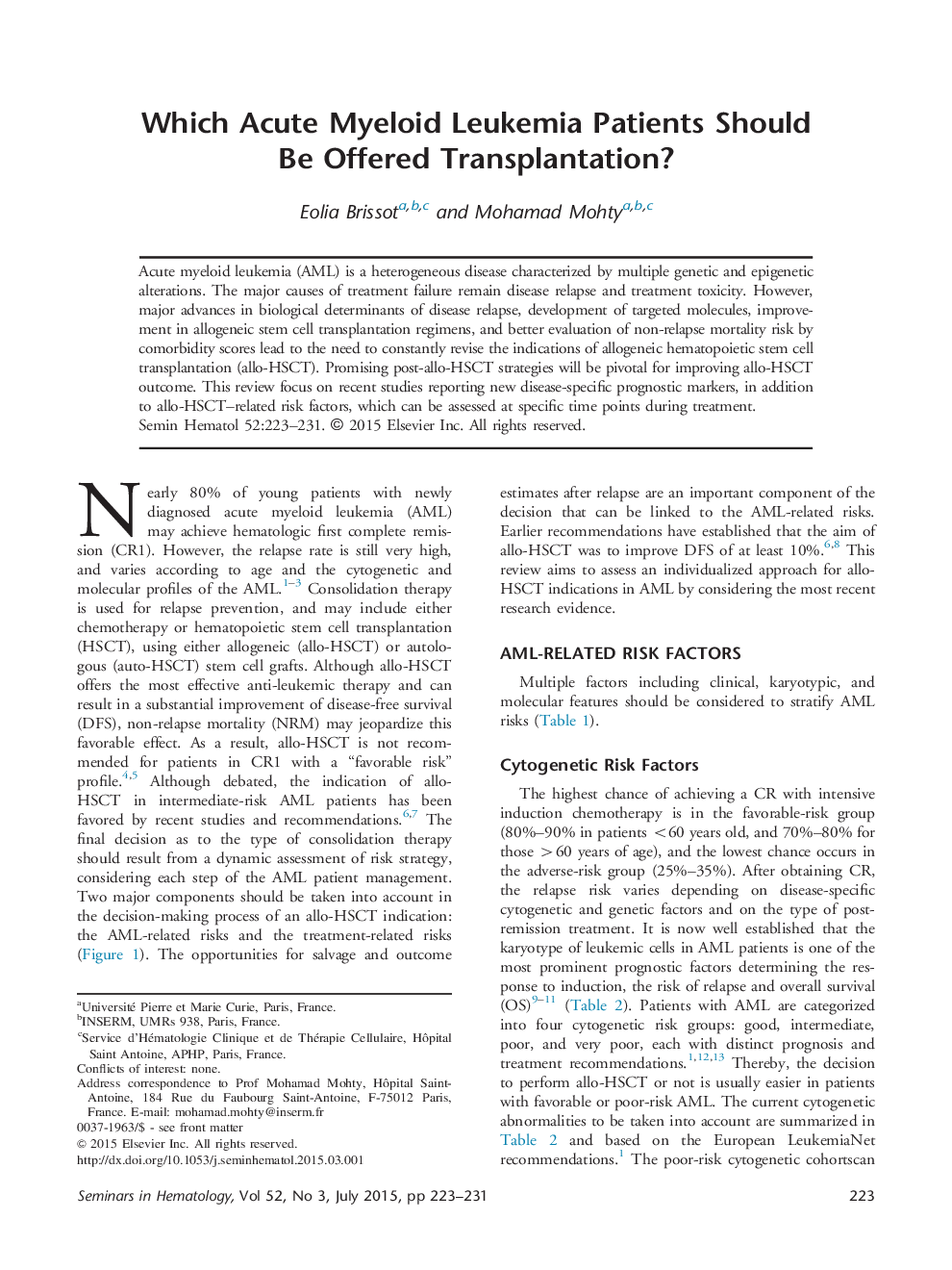| Article ID | Journal | Published Year | Pages | File Type |
|---|---|---|---|---|
| 3333460 | Seminars in Hematology | 2015 | 9 Pages |
Acute myeloid leukemia (AML) is a heterogeneous disease characterized by multiple genetic and epigenetic alterations. The major causes of treatment failure remain disease relapse and treatment toxicity. However, major advances in biological determinants of disease relapse, development of targeted molecules, improvement in allogeneic stem cell transplantation regimens, and better evaluation of non-relapse mortality risk by comorbidity scores lead to the need to constantly revise the indications of allogeneic hematopoietic stem cell transplantation (allo-HSCT). Promising post-allo-HSCT strategies will be pivotal for improving allo-HSCT outcome. This review focus on recent studies reporting new disease-specific prognostic markers, in addition to allo-HSCT–related risk factors, which can be assessed at specific time points during treatment.
